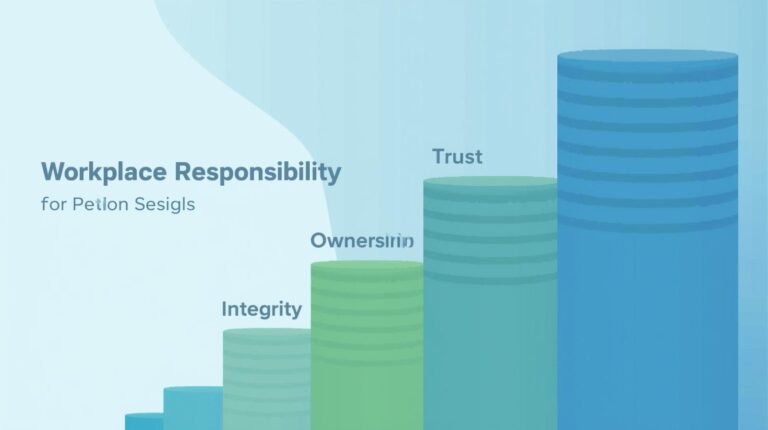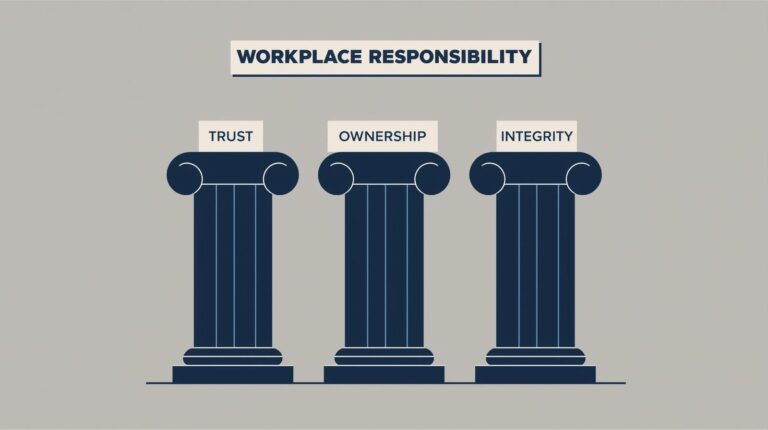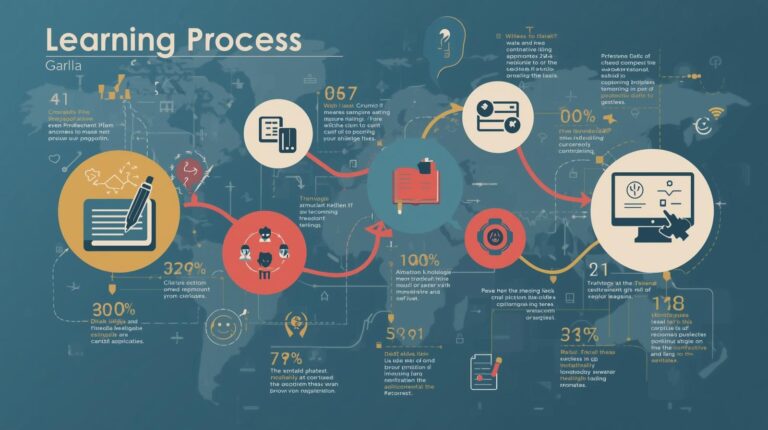The Benefits of Accountability: Why Responsibility Fuels Success at Work
Accountability sometimes gets framed as a burden—something people dread because it means extra scrutiny, tough conversations, or consequences when things go wrong. But if you’ve ever worked in a team where accountability was alive and well, you know the truth: accountability doesn’t weigh people down—it lifts them up.
An accountable workplace is one where people keep their promises, own their actions, and support one another in achieving shared goals. Far from creating stress, accountability brings clarity, trust, and energy to an organization. Employees know what’s expected of them, managers know they can rely on their teams, and the whole company moves forward with focus.
In this article, we’ll explore the real, tangible benefits of accountability—benefits that ripple through individuals, teams, and organizations.
Accountability Improves Performance
Let’s start with the most obvious benefit: accountability improves results.
When people take ownership of their responsibilities, performance naturally rises. Employees don’t just “do enough to get by.” They push to meet commitments, deliver quality work, and look for ways to exceed expectations.
Why? Because accountability shifts the mindset from “this is my task” to “this is my responsibility.” Tasks can be done halfway; responsibilities demand follow-through.
Think about a sales representative who owns their monthly target:
Without accountability, they might shrug off missed numbers with excuses about the market.
With accountability, they dig deeper, find new leads, and ask for support to hit the goal.
The difference shows up directly in performance metrics—not just for individuals but for the team as a whole.
Accountability Builds Trust and Integrity
Trust is the currency of any workplace. Without it, collaboration stalls and relationships weaken. Accountability is one of the fastest ways to build trust because it demonstrates integrity in action.
When employees consistently deliver on promises, their colleagues know they can rely on them. When managers admit mistakes and take responsibility, employees feel they’re working for leaders with integrity.
This cycle strengthens over time:
Accountability → Trust → Stronger collaboration → Better results → More accountability.
Integrity isn’t just a moral ideal; it’s a practical necessity. Organizations with high trust move faster, adapt more easily, and weather challenges with resilience. Accountability is the engine that drives that trust.
Accountability Increases Employee Engagement
Engagement is more than job satisfaction—it’s the emotional commitment employees bring to their work. And accountability plays a powerful role in driving engagement.
Why? Because accountability gives work meaning. Employees who are trusted to take ownership feel valued. They’re not just cogs in a machine—they’re contributors whose actions matter.
On the flip side, workplaces with little accountability often see disengagement. When commitments don’t matter and poor performance goes unchecked, high-performing employees grow frustrated. They begin to ask, “Why should I give my best if it doesn’t make a difference?”
By creating a culture of accountability, organizations show employees that their contributions are noticed, valued, and tied to real outcomes. That sense of impact fuels engagement.
Accountability Creates Workplace Satisfaction
Satisfaction at work isn’t about beanbags, free coffee, or casual Fridays. It’s about working in an environment where expectations are clear, contributions are recognized, and trust runs both ways. Accountability creates those conditions.
Consider two workplaces:
In the first, deadlines are missed regularly, communication is vague, and poor performance is ignored. Frustration builds because employees never know where they stand.
In the second, accountability is the norm. People know their responsibilities, can rely on their teammates, and see results when goals are achieved.
Which environment produces higher satisfaction? The one where accountability is alive and well.
Satisfied employees aren’t just happier—they’re more loyal, more productive, and more likely to stay with the organization long-term.
Accountability Strengthens Dedication to Roles
Dedication doesn’t come from job titles or paychecks alone—it comes from a sense of ownership. When employees know they’ll be held accountable, they take their roles seriously.
That dedication shows up in subtle but powerful ways:
A project manager who double-checks deliverables before sending them out.
A customer service agent who follows up after resolving a complaint to make sure the customer is satisfied.
A team leader who prepares thoroughly for meetings because they value their colleagues’ time.
Dedication isn’t about perfection; it’s about commitment. And accountability is what transforms “just doing my job” into “I’m invested in this outcome.”
A Case Study: Accountability in Action
Let’s imagine a healthcare organization rolling out a new electronic medical record system.
In a low-accountability environment, deadlines slip, staff resist learning the system, and managers deflect responsibility when problems arise. The rollout drags on for months, morale drops, and patients experience longer wait times.
In a high-accountability environment, leaders set clear goals, employees take ownership of learning the system, and teams support one another when challenges appear. Managers admit when processes need adjusting and work with staff to improve them. The rollout is smoother, patients benefit, and staff pride grows.
The difference isn’t resources—it’s accountability. And the benefits extend far beyond the project itself, shaping culture and confidence in the long term.
Beyond the Workplace: Personal Benefits of Accountability
While much of this discussion focuses on organizational outcomes, accountability also benefits individuals on a personal level. Employees who practice accountability often experience:
Stronger professional reputations. Colleagues and leaders see them as reliable and trustworthy.
Faster career growth. Accountability signals leadership potential.
Greater self-confidence. When you own your commitments and follow through, you prove to yourself that you’re capable.
Accountability is a skill that pays dividends both inside and outside the workplace.
Why Accountability Benefits Last
Here’s the beauty of accountability: its benefits compound. Each time someone delivers on a promise, trust grows. Each time a leader admits a mistake, credibility deepens. Each time a team holds itself accountable, performance improves.
Over time, accountability shifts from being a practice to being a culture. And cultures of accountability don’t just survive—they thrive.
Practical Ways to Reinforce Accountability
If you want to see these benefits in your workplace, accountability must be reinforced daily. Some practical approaches include:
Set clear expectations. Clarity eliminates excuses and confusion.
Celebrate follow-through. Recognize not just big wins but consistent reliability.
Balance support with consequences. Provide resources for success but also address repeated lapses.
Model accountability at every level. Leaders must walk the talk.
Small actions build momentum. Over time, the benefits of accountability become self-sustaining.
Final Thoughts
Accountability isn’t about punishment or fear—it’s about ownership, integrity, and trust. When it’s present, workplaces transform. Performance improves, trust strengthens, engagement rises, satisfaction deepens, and employees dedicate themselves fully to their roles.
The benefits of accountability aren’t abstract. They’re practical, measurable, and game-changing. If you want your organization to thrive, don’t treat accountability as a checkbox. Treat it as the heartbeat of your culture.
Because at the end of the day, accountability isn’t just about holding people to standards—it’s about unlocking their potential to contribute, grow, and succeed together.



